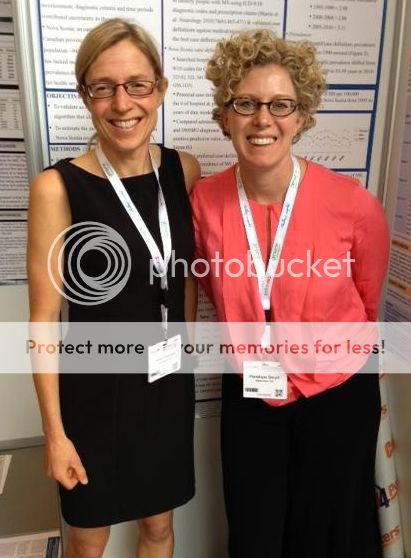Conferences like ECTRIMS are a great platform for scientists, academic institutions and health organizations to announce breakthrough discoveries and important medical and research news.
During this year’s ECTRIMS meeting in Copenhagen, the Multiple Sclerosis International Federation (MSIF) announced the release of a very important document called the Atlas of MS. Made possible by the work of many individuals in the health and government sectors, the Atlas of MS provides a detailed overview of the patterns of MS prevalence, diagnosis, and treatment around the world. Not only does it reveal the number of people with MS in different countries, but also highlights the distribution of resources and services for people with MS in these areas.
The objective of the atlas is to assist governments, policy makers, non-profit organizations, and private industry in making informed decisions around the treatment and support for people with MS. The Atlas also encourages researchers to engage in international collaboration and raises awareness about MS in various areas.
Ultimately, if MS communities around the world can identify gaps in research, healthcare, government polity and support programs, they will be able to develop the necessary tools and practices that will address these gaps and build a better future for people affected by MS. More information on the Atlas of MS and key findings can be read in detail on the MS Society website.
I felt a sense of pride when I learned that many Canadians contributed to the development of this critical resource, including staff at the MS Society and MS Society-funded researchers. I had an opportunity to speak with one of the researchers at ECTRIMS. Dr. Helen Tremlett (pictured below at ECTRIMS with neurologist Dr. Penelope Smyth from Calgary) is an associate professor in the Faculty of Medicine and epidemiologist at the University of British Columbia. Dr. Tremlett is interested in observing the effects of MS on people. Specifically, she looks at the relationship between MS and: pregnancy, family relationships, disability, other chronic health conditions and use of therapies.

Here are the some of the highlights from my interview.
What is the study of epidemiology and why is it important in MS?
Epidemiology is the study of the patterns, causes, and effects of disease in different groups of people. Epidemiology is absolutely fundamental in multiple sclerosis. Determining how many people have MS, how to diagnose MS, the prognosis of MS is, and how MS drugs impact quality of life are all based on data from well-designed epidemiological studies.
What specific research are you doing in this area?
My laboratory at UBC is currently undertaking a number of interesting studies, many of which are being presented here at ECTRIMS. We are interested in patterns of MS in British Columbia. People in BC who have MS are showing the highest life expectancy in Canada, but they are still living about 6 years shorter when compared to the general population. We are trying to determine why that is. We are also presenting work on cancer risk and cancer death amongst people with MS, to see if there are any differences when compared with people who have cancer but do not have MS. Finally we collaborated with other Canadian researchers on a study on MS in Nova Scotia, where we know the prevalence of MS is high but data is still very limited. Results from the Nova Scotia will greatly assist in determining MS risk and helping to plan appropriate health services.
What about linkage studies? What are they and what can they tell us about MS?
Data linkage studies allow researchers to link information on MS collected from the clinics to health data from other sources like cancer databases, mortality databases, pregnancy databases etc. Through this process we can draw connections between these conditions and MS and try and identify any patterns. There is an extraordinary amount of information available that can help us better understand the impacts of MS and answer complex questions. For example, we are beginning to notice that people with MS are living longer. In Nova Scotia, the average age of a person with MS is somewhere in the late 50’s, which is different from a few decades ago when MS was typically seen in younger people. Database studies can help us determine changes over time that may account for this observation.
Have you done any research which looks at the role of lifestyle and environmental factors on MS risk and progression?
It is often challenging to gather lifestyle and environmental information, but I recently spent a few months in Boston working on a study that followed a large number of women over time. In those women who went on to develop MS, my colleagues looked at potential triggers like exposure to sunlight and Epstein–Barr virus. This study is still ongoing but could have some interesting information that will point to the potential impacts of outside influences on MS disease.
Why is the Atlas of MS an importance resource?
The Atlas of MS is an excellent database of epidemiological information that would be otherwise hard to retrieve from other sources. We know in general that the global prevalence of MS has increased over time, and with the new information provided in the atlas we are beginning to learn more about why that is. For example, we now have information on numbers of MRI machines, availability of neurologists as well as the use of MS therapies in both high and low income countries around the world.
The Nova Scotia MS study, conducted by MS-Society funded researchers Drs. Helen Tremlett, Ruth Ann Marrie, Christina Wolfson and collaborators was published last month in the Canadian Journal of Neurological Sciences
